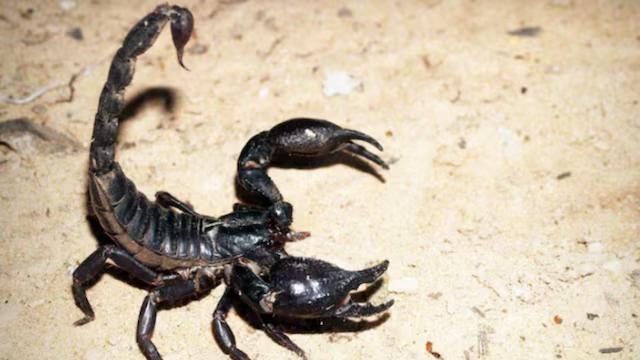
Amazon Scorpion Venom Kills Breast Cancer Cells: Study
In a groundbreaking discovery, researchers at the University of São Paulo have identified a molecule in the venom of a species of Amazonian scorpion, Brotheas amazonicus, that exhibits anti-tumor properties similar to chemotherapy drugs. The study, published recently, suggests that the venom has the potential to be developed into a new treatment for breast cancer.
The researchers, led by Dr. Marcelo Jacob-Santos, discovered a bioactive molecule called BamazScplp1 in the venom of the Amazonian scorpion. This molecule was found to be capable of killing breast cancer cells while leaving healthy cells unharmed. The study’s findings were published in the journal “Toxicon” and have sent shockwaves through the scientific community.
According to the study, the venom of the Amazonian scorpion contains a unique combination of peptides and amino acids that work together to target and destroy breast cancer cells. The researchers used a combination of bioassays and molecular biology techniques to identify and characterize the bioactive molecule.
The study found that BamazScplp1 was able to induce apoptosis (programmed cell death) in breast cancer cells, similar to the way chemotherapy drugs work. However, the venom molecule was found to be more selective in its targeting of cancer cells, reducing the risk of harm to healthy cells.
The researchers are now working to clone and express the bioactive molecule, with the goal of developing it into a new treatment for breast cancer. According to Dr. Jacob-Santos, “The venom of the Amazonian scorpion is a rich source of bioactive molecules with potential therapeutic applications. We are excited to explore the possibilities of this molecule and its potential to treat breast cancer.”
Breast cancer is one of the most common and deadly forms of cancer, affecting millions of women worldwide. Current treatments for breast cancer often involve chemotherapy, radiation, and surgery, which can have significant side effects and risks. The development of new treatments that are more targeted and effective is a vital area of research.
The discovery of the anti-tumor properties of the Amazonian scorpion venom is not only significant for breast cancer treatment but also highlights the importance of exploring the natural world for new and innovative solutions. The venom of other animals, such as snakes, spiders, and insects, has been used to develop new medicines and treatments for a range of diseases.
The study’s findings are a testament to the power of interdisciplinary research and the importance of collaboration between scientists from different fields. The researchers involved in the study came from a range of backgrounds, including biochemistry, pharmacology, and toxicology.
In conclusion, the discovery of the anti-tumor properties of the Amazonian scorpion venom is a significant breakthrough in the field of cancer research. The development of this molecule into a new treatment for breast cancer has the potential to improve patient outcomes and reduce the risk of harm to healthy cells. As researchers continue to explore the natural world for new and innovative solutions, we may uncover even more exciting discoveries that can help us better understand and treat this devastating disease.






